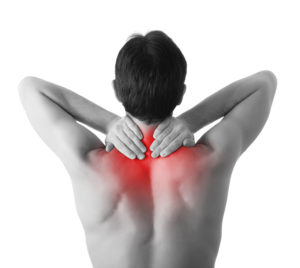Stress Related Conditions
It seems as if these days everyone is more stressed. It might be simply a product of living in London, but i think there is something about modern life, the incessant demands, the deluge of information, the constant connectivity to so much that is going on. Most of my journeys on public transport I see half or more of the people hunched over their smartphones or tablets, and a great many spend most of their days sat at computers for work.
The abundance of information is enough to focus us externally, out of ourselves and our bodies, and the positions we adopt when using these technologies does us no favours either. I am no Luddite, but I care about peoples health and really think we need to find more balance in our lives to manage the stresses and strains of working today, putting boudaries on our screen time and get ourselves moving more.
Here are some conditions i commonly see in clinic which have a relationship to stress:

Anxiety and Depression
sustained periods of stress commonly result in people feeling highly strung or anxious, with symptoms such as oppression in the chest, palpitations, shallow breathing or ‘butterflies’ in the stomach, nausea or a feeling of impending doom. The link between anxiety and depression has been widely noted such that they are now categorised together in the DSMV diagnostic system for psychological disorders. It is a short logical step to see how feeling like this can also involve feeling down, without motivation or energy. The charity Mind now recommends acupuncture for these conditions.
Irritable Bowel Syndrome, IBS
There are a wide number of functional gut disorders with differing symptoms that are commonly grouped under the label of irritable bowel syndrome. In short chronic stress is a continuation of the fight or flight response without either the fight, nor the flight to make use of the powerful hormonal effects of adrenalin and cortisol, and without the rest afterwards our ancestors would have had after acute stress to rebalance the body. These hormones, especially adrenalin diverts your bodies resources to the muscles for use and away parasympathetic nervous systems which are less vital to fight or escape. These include the gut and over a long enough period the way the gut functions can be impaired in a number of ways, the smooth muscle action of the gut can be impaired affecting your digestive processes and leading to this array of varied functional digestive systems. You can read a case study of one case in my blog here.
Neck and Shoulder tension
There are biomechanical reasons that a person may develop neck and shoulder tension and pain which will be dealt with separately under postural problems. Here we can see that many of us, when stressed develop increased tension in our upper bodies, maybe you can relate to that? The physiology of how this works leads on from the idea above; as the body diverts resources to your larger muscles for flight or a fight, they are on edge, ready, but again no physical activity occurs through which to ‘burn off’ the stress effect so the tension builds and builds becoming chronic.
Headaches
In our language we often refer to a difficult situation as a headache, and headaches can certainly come about as a result of stress. That can be through muscular tension and trigger points in the neck and shoulders referring pain to the head, jaw tension or even high blood pressure raised by stress and stressful situations. Migraine and cluster headaches can also have these biomechanical features and be effectively managed by working on rebalancing areas of muscle tension and weakness with acupuncture, manual therapy, exercise and alignment advice.
Lower back pain
Also linked to the postural problems mentioned above. Low back pain can be very much related to work. Seated positions held for hours a day train our hamstrings and hip muscles to shorten, backward sloping chairs encourage us to slump, flexing the lumbar spine, work with screens encourages our heads to come forward rounding the shoulders and tensioning the neck. All of these can contribute to and be involved with lower back pain and chronic muscle tension in the lumbar area. See case study here.
Painful periods
The physiological link with stress and painful periods or dysmenorrhea is less straightforward, but most women who experience painful menstruation will recognise that it will often be worse during or after a stressful situation. One way of seeing this in Chinese medicine is that stress (and especially frustration) lead to the Qi not flowing smoothly, called constraint. This impaired flow of qi is more likely to lead to menstrual pain as it can also then impair proper menstrual flow. See case study here.
Insomnia
As with anxiety, chronic stress increases the amount of adrenalin in our systems, we go into a heightened awareness state for fight or flight, then naturally it can be hard to settle our minds and relax off to sleep. It is a challenge to switch off and let the days events stay behind us, especially with the working demands of modern life. Acupuncture seems to help downregulate our system, settling us back out of that adrenal drive and allowing relaxation.
Premenstrual tension.
Many of the symptoms of pre menstrual tension are associated with the Chinese medicine pattern of Liver Qi constraint, as mentioned above under painful periods. Irritability is a classic sign, also abdomnial bloating, cramps and tender breasts. Stress simply increases the likelyhood of experiencing these symptoms by increasing the degree of constraint. See case study here.
Hair loss
Yes, even hair loss. I have seen a few people whose hair has started to fall out during extended periods of chronic stress. There are of course other patterns of hair loss which do not have this feature and are very difficult to treat. Where the problem is primarily stress related we have seen acupuncture be very effective in stopping the progression of hair loss and keeping it going again.








